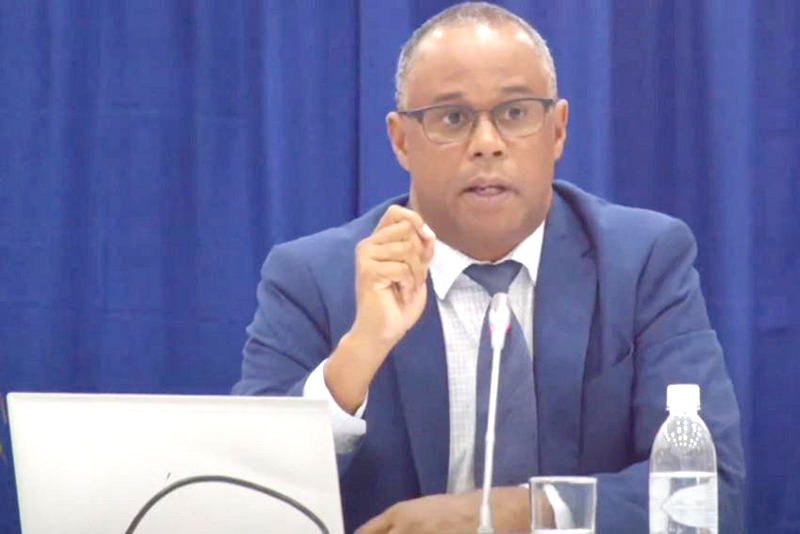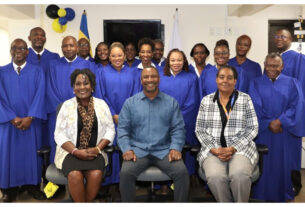BY FABIAN BELGRAVE | AUG 11, 2022
Derek Osbourne, Actuary with the National Insurance Board. (Courtesy of the PMO’s Office)
The National Insurance Scheme (NIS) is in need of reform to ensure it is not depleted in another 12 to 20 years.
This was emphasized yesterday as Actuary with the National Insurance Board, Derek Osborne, addressed the press conference chaired by Prime Minister Mia Amor Mottley at the Lloyd Erskine Sandiford Centre.
Noting that such a depletion could be “as soon as 12 years from now, in 2034 on a pessimistic outlook, but on a more optimistic outlook, it could be in 2041”, Mr. Osbourne said: “In the next 12 to 15 years, we are looking at the Fund being really challenged in a crisis position and a Fund being depleted does not mean that NIS will no longer exist. It just means that NIS would need to find additional funds because there is no longer any savings, which you can deplete to meet immediate benefits.”
The NIS, which is a comprehensive system of social protection for Barbadians, carried out reform in 2003/04. Changes made back then saw the contribution rate increase from 14 per cent to 18 per cent. Additionally, the pension age for full pension was increased from 65 to 67 and benefits were made slightly less generous.
Mr. Osborne, who also pointed out that the last 18 years had been challenging. said some economic cycles had not been good to the NIS, and not been good to Barbados. He noted the population was now declining and starting in 2017 there had been more deaths each year than births, migration and what is deemed the natural increase of population is now negative.
“We believe that migration outward continues, and so the population is now lower than it was five years ago and lower than it was 10 years ago. Again, for economic reasons, employment levels have come down. There are about 9,000 fewer workers, before COVID started, than there were 10 years prior. So, we have declining populations, declining employment-based economy over the last 13 years. Nine of those 13 years saw a negative growth; average, real GDP growth in that period was barely positive, over that time period,” he explained.
While he stressed that COVID-19 affected the labour force in 2020, and contribution income was down, Mr. Osbourne noted, however, that no benefits on the National Insurance Fund were affected. “All of the increase in benefits were on the unemployment fund, which paid out over $150 million in the year and a half during COVID. That fund is back on good footing. Money was borrowed from National Insurance Fund to be repaid. And also government will be recapitalizing that fund over a period of three years,” he said.
Mr. Osborne addressed the current financial state of the NIS, which he said has just under $4 billion and this was why the country was addressing it at this point in time. Identifying factors responsible for this, such as the island’s ageing population, the actuary stated: “In the 60s, families became smaller and smaller. So what we have in the last 18 years from the last pension reform is a reduction in the number of people paying in versus the number who are taking out. So back in 2004, there were 3.6 people paying in for every one pensioner, now it’s 2.4 and shrinking every year. And, the outlook is that it will be 1.8 in 2040, and down to 1.7 in 2060.”
The development of Barbados’ social security scheme in 1967 had its origins in the late 19th century. The growth of national social security includes the passing of the Poor Law Relief Act in 1880 to the creation of the Maternity Grant in 1985. The NIS celebrated 55 years of existence in June of this year.




